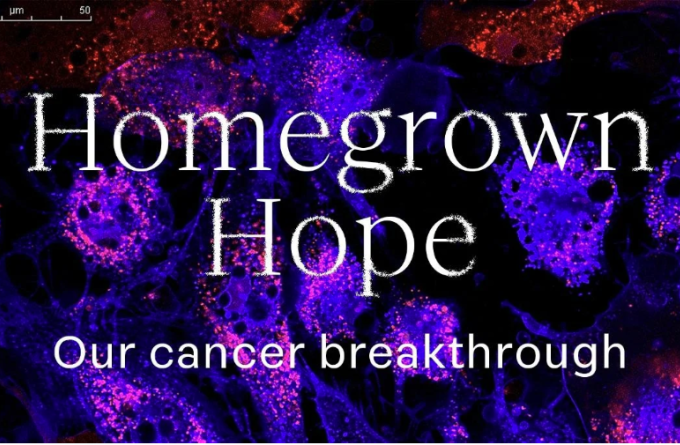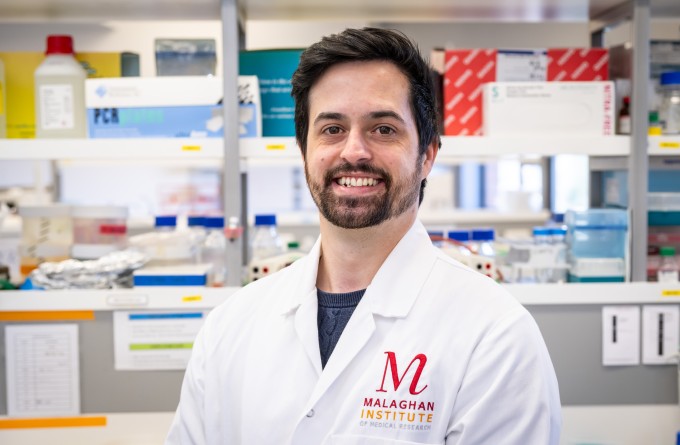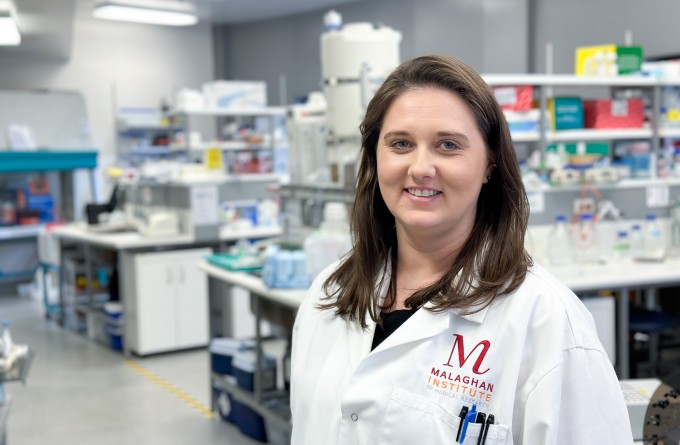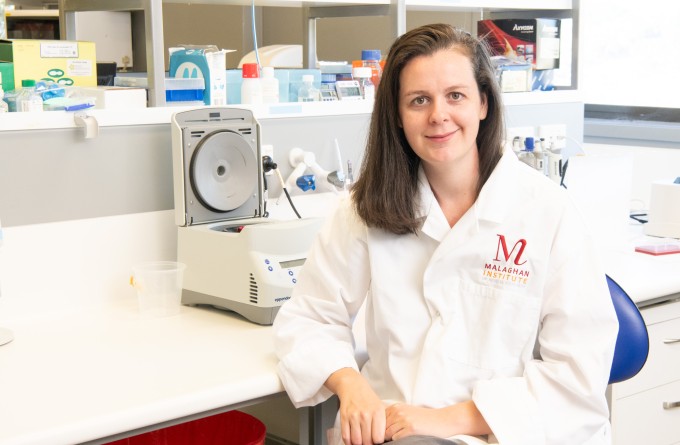5 November 2025
The Malaghan Institute has been awarded four grants from the prestigious Marsden Fund to explore bold new ideas in cancer, allergy and infectious disease research.

From left: Dr Olivier Lamiable, Dr Kerry Hilligan, Dr Olivia Burn, Dr David O'Sullivan
The contestable grants, worth more than $2.6 million over three years, will support projects ranging from enhancing CAR T-cell therapies and reprogramming allergic responses to exploring protective microbes and developing a therapeutic liver cancer mRNA vaccine.
Director Professor Kjesten Wiig says being awarded four highly-competitive Marsden grants speaks to the exceptional calibre of the Malaghan Institute’s scientists and the breadth of research driving new insights to prevent, treat and cure disease.
“Blue-sky research is vital for an independent biomedical institute like ours – it fuels the discoveries that will eventually become real-world treatments with sustained investment.”
Fine-tuning cancer-killing T-cells to overcome toxic microenvironments
As ‘living drugs’ CAR T-cell therapies can be used to actively hunt down and kill cancer cells. This approach has proved extremely successful in treating blood cancers but the full potential of these therapies for solid tissue cancers is yet to be realised.
A key challenge for treating solid tumours is overcoming an often debilitating cellular microenvironment. Waste products from cancer cells such as lactate can build up in and around the tumour which can impair the activity of cancer-killing T-cells – preventing the immunotherapy from working as intended.
Dr David O’Sullivan has been awarded a Marsden Fund Standard Grant to explore ways to optimise T-cells to cope with increased levels of lactate in order to overcome this suppressive microenvironment. By making CAR T-cells more robust, the research aims to pave the way for more effective and durable immunotherapies for solid tumours.
Targeting metabolic pathways in a novel approach to treating allergies
Allergies occur when the immune system overreacts to harmless substances. Affecting over a third of New Zealanders, current treatments only manage symptoms.
Dendritic cells are key immune cells that initiate and shape allergic reactions by orchestrating T-cell responses. Emerging research shows that how these cells use and process energy strongly influences their behaviour, making them a promising target for new allergy treatments.
Dr Olivier Lamiable has been awarded a Marsden Fund Standard Grant to explore these metabolic pathways and assess whether repurposing metabolic modulators already used in the clinic could provide novel, cost-effective allergy treatments.
The project team will dissect the precise role of these metabolic pathways in how dendritic cells drive allergic inflammation and as proof-of-concept will test whether targeting cholesterol metabolism with common drugs like statins can reduce skin allergy symptoms, paving the way for new treatment strategies.
Protecting the lung from respiratory diseases
The lungs are constantly exposed to a wide range of microbes that shape how the immune system responds to infection. Dr Kerry Hilligan and her team have discovered that exposure to fungal spores can provide powerful protection against influenza infection.
Building on her earlier findings that exposure to bacteria or parasites can train lung cells to respond more effectively to viruses, Dr Hilligan’s latest research suggests that fungi may also hold the key to limiting respiratory viral disease – specifically by preventing lung damage.
With support from a Marsden Fund Fast-Start Grant, the team will investigate how fungal exposure triggers this protection and identify the specific fungal components responsible. Their goal is to develop new treatments that preserve lung function and improve recovery from viral infections, delivering lasting health benefits for New Zealand
Revolutionising liver cancer treatment with a targeted mRNA vaccine
Liver cancer is one of the least survivable cancers in New Zealand, with limited treatment options and disproportionately poor outcomes for Māori. While recently approved immunotherapies including immune checkpoint inhibitors offer hope, response rates remain low.
Dr Olivia Burn has been awarded a Marsden Fast-Start Grant to explore whether a novel mRNA vaccine can be used to boost the activity and persistence of cancer-killing T-cells in the liver and make liver cancer more susceptible to immunotherapy. The team will study how this vaccine performs across patient-relevant genetic subtypes of liver cancer and explore why some tumours are harder to treat with immunotherapy than others.
This research has the potential to improve clinical outcomes for people with liver cancer, and broaden understanding of how immune responses to cancer vary – paving the way for more tailored, effective cancer therapies in the future.
Related articles

A ground-breaking cancer treatment is within reach – but only if New Zealand acts now
12 February 2026

Homegrown Hope - Stuff's series on CAR T-cell therapy
11 February 2026

NZ-UK research deepens understanding of germinal centres for better vaccine design
27 January 2026

How a quirk of the immune system may play a big role in protecting us from disease
18 December 2025

Dr Kerry Hilligan awarded Sir Charles Hercus Health Research Fellowship
2 December 2025

The nose knows: new research explores next generation of nasal vaccines
2 December 2025
